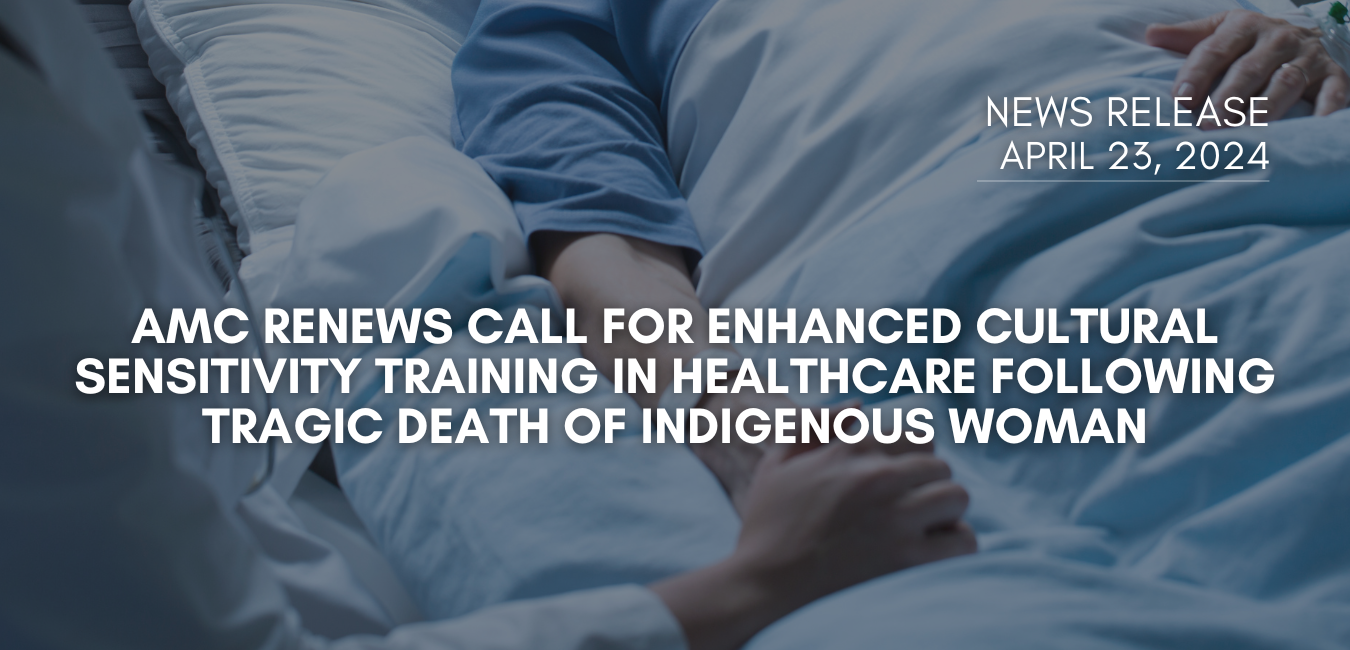AMC Renews Call for Enhanced Cultural Sensitivity Training in Healthcare Following Tragic Death of Indigenous Woman

April 23, 2024
Treaty One Territory, Manitoba
AMC Communications
Treaty One Territory, Manitoba – The Assembly of Manitoba Chiefs (AMC) is renewing its call for the province to work with First Nations Leadership to administer enhanced cultural sensitivity training for healthcare professionals across the province. This call to action comes a day after the daughter of Jean Kemash filed a statement of claim alleging her mother’s race played a role in negligent medical care that caused her death. Jean Kemash, a 68-year-old Indigenous woman, died at Winnipeg’s Grace Hospital in 2022.
“First Nations’ lived experiences of racial bias and systemic racism within healthcare institutions raise urgent questions about the equitable treatment of First Nations patients and the disproportionate impact of systemic racism and practitioner prejudice on their health outcomes,” said AMC Grand Chief Cathy Merrick.
Such allegations underscore broader concerns about the quality of healthcare provided to First Nations in Manitoba and across Canada. In fact, just last year, the college that regulates Manitoba’s physicians apologized for its current and historical failure to respond to indigenous-specific racism in the medical profession. The College of Physicians and Surgeons of Manitoba said its responsibility also extends to the racist actions and inactions perpetuated by physicians, residents, medical students, clinical assistants, and physician assistants.
The loss of Jean Kemash serves as a stark reminder of the persistent barriers faced by First Nations citizens in accessing culturally safe and dignified healthcare services. “First Nations experience the consequences of institutionalized racism when trying to access services in provincial health systems. Look at the case of Brian Sinclair, an indigenous man who died at Winnipeg’s Health Sciences Centre in 2008 or that of Joyce Echequan, an Atikamekw woman in Quebec. Across the country, healthcare professionals are quite literally ignoring our people to death,” continued Grand Chief Merrick.
“Reconciliation demands that the province and health authorities collaborate with First Nations Leadership to confront and dismantle these systemic barriers to transform Manitoba’s health system into one that upholds the dignity and self-identified rights of First Nations. That is the standard that I expect.”
The AMC remains dedicated to advocating for justice, accountability, and meaningful reforms within the healthcare system to ensure the well-being and survival of all First Nations seeking care in provincial healthcare systems.
For more information, please contact:
Communications Team
Assembly of Manitoba Chiefs
Email: media@manitobachiefs.com
About the Assembly of Manitoba Chiefs
The AMC was formed in 1988 by the Chiefs in Manitoba to advocate on issues that commonly affect First Nations in Manitoba. AMC is an authorized representative of 62 of the 63 First Nations in Manitoba with a total of more than 172,000 First Nations citizens in the province, accounting for approximately 12 percent of the provincial population. AMC represents a diversity of Anishinaabe (Ojibway), Nehetho / Ininew (Cree), Anisininew (Ojibwe-Cree), Denesuline (Dene) and Dakota Oyate (Dakota) peoples.